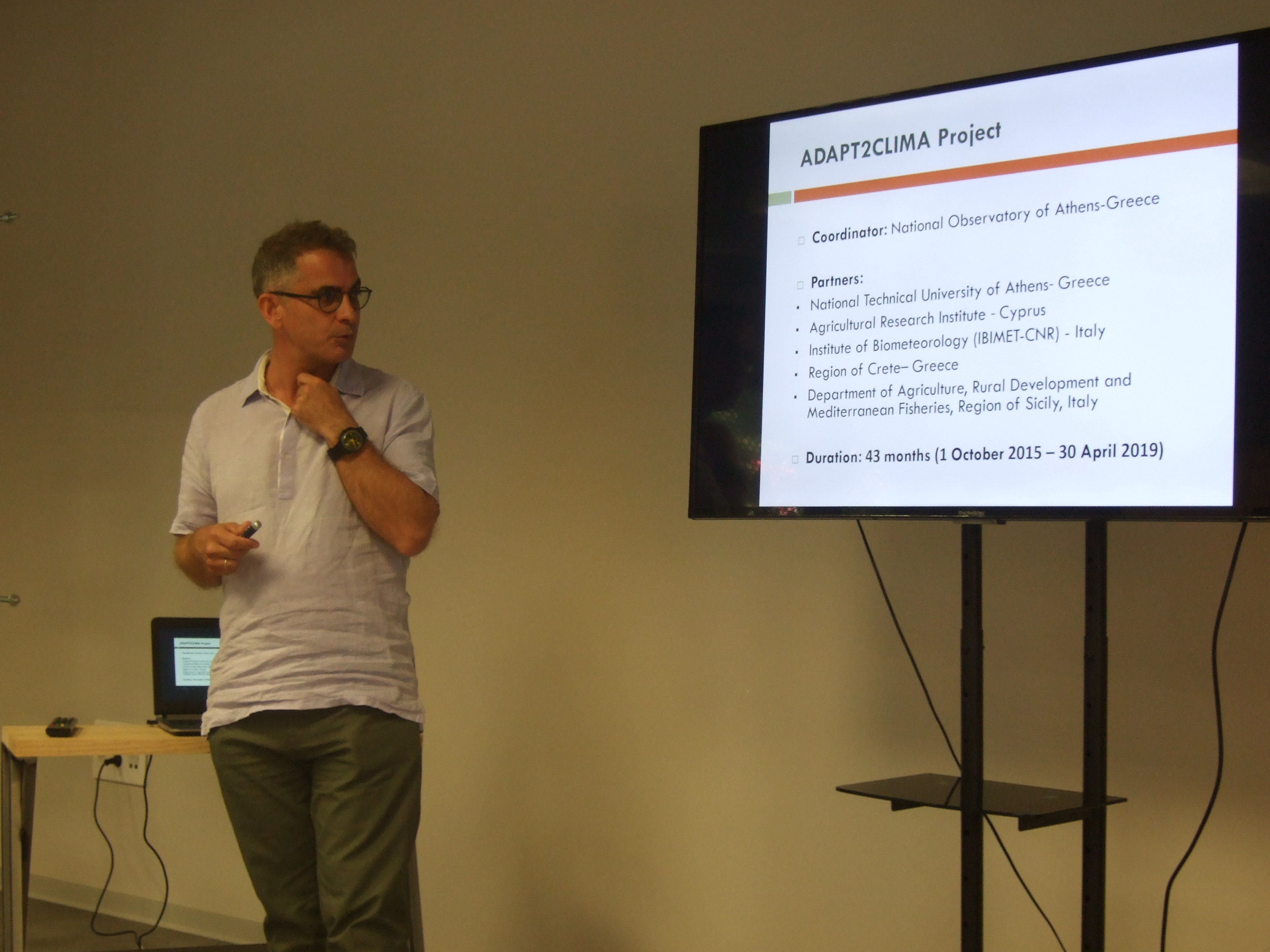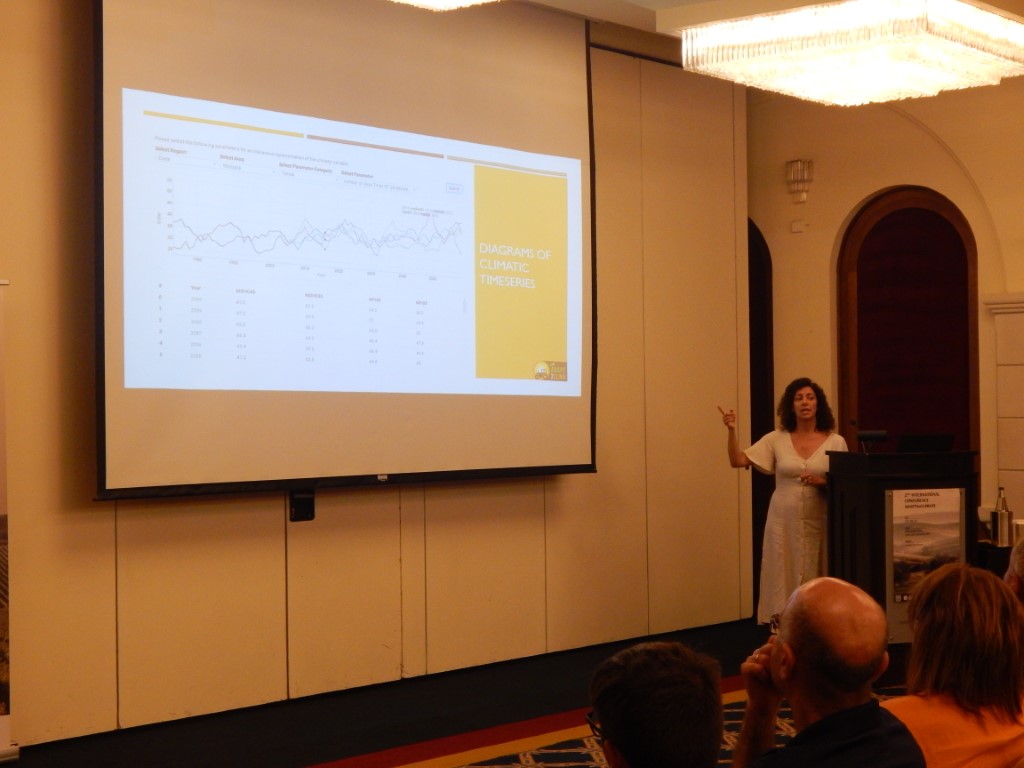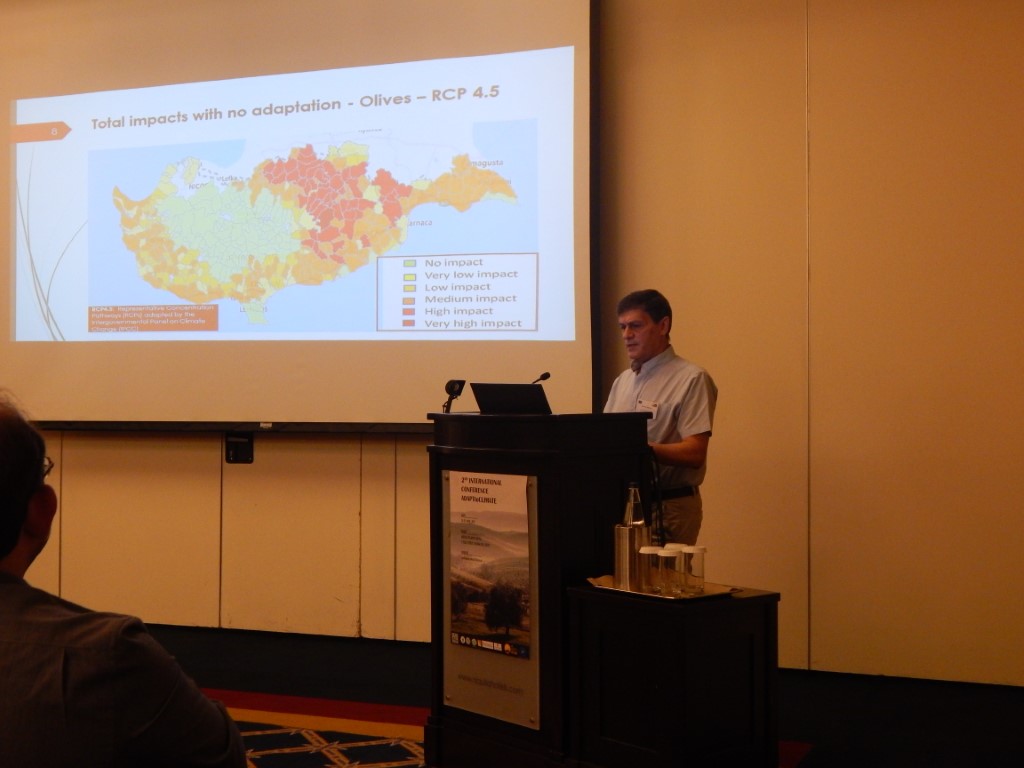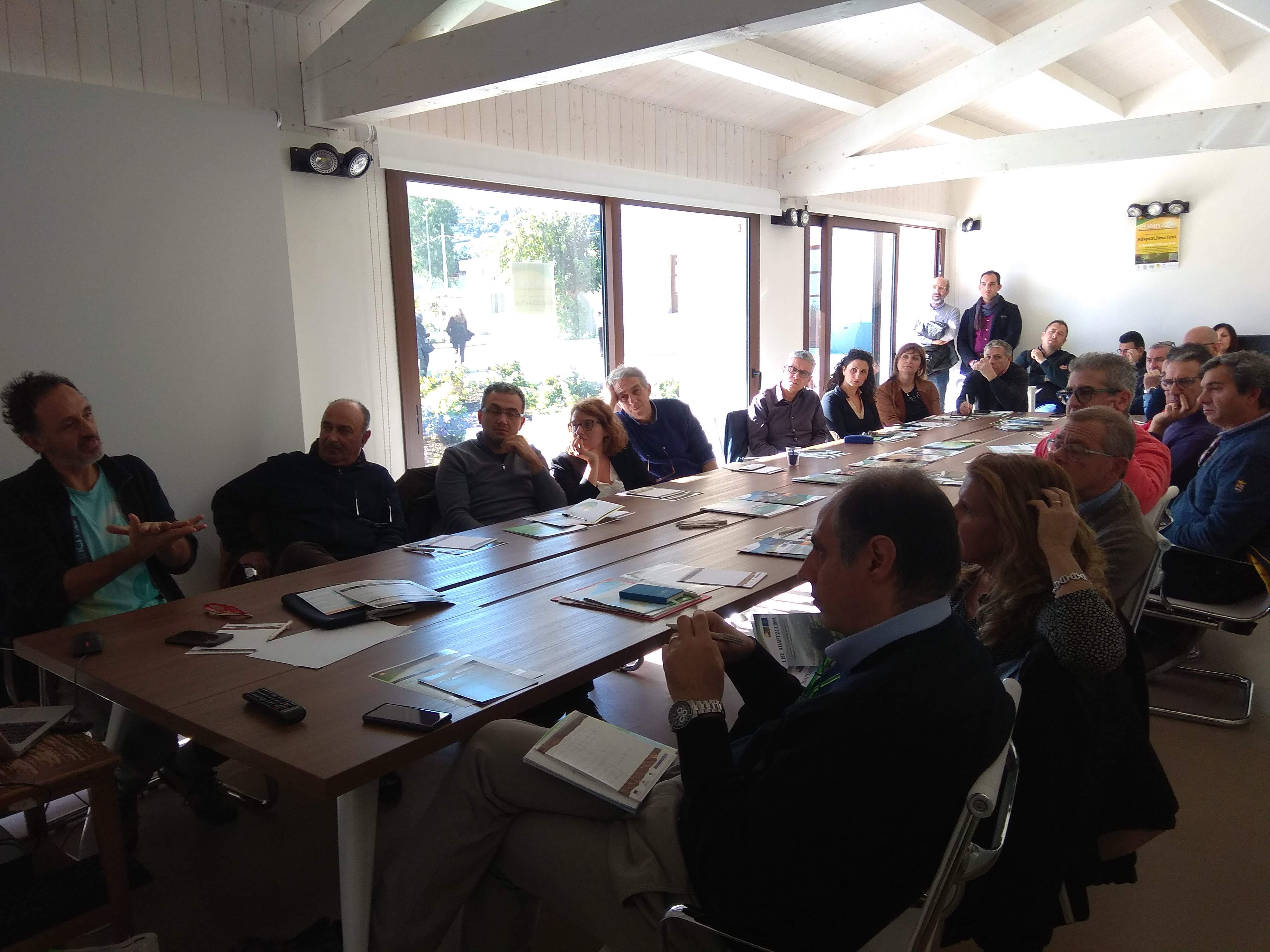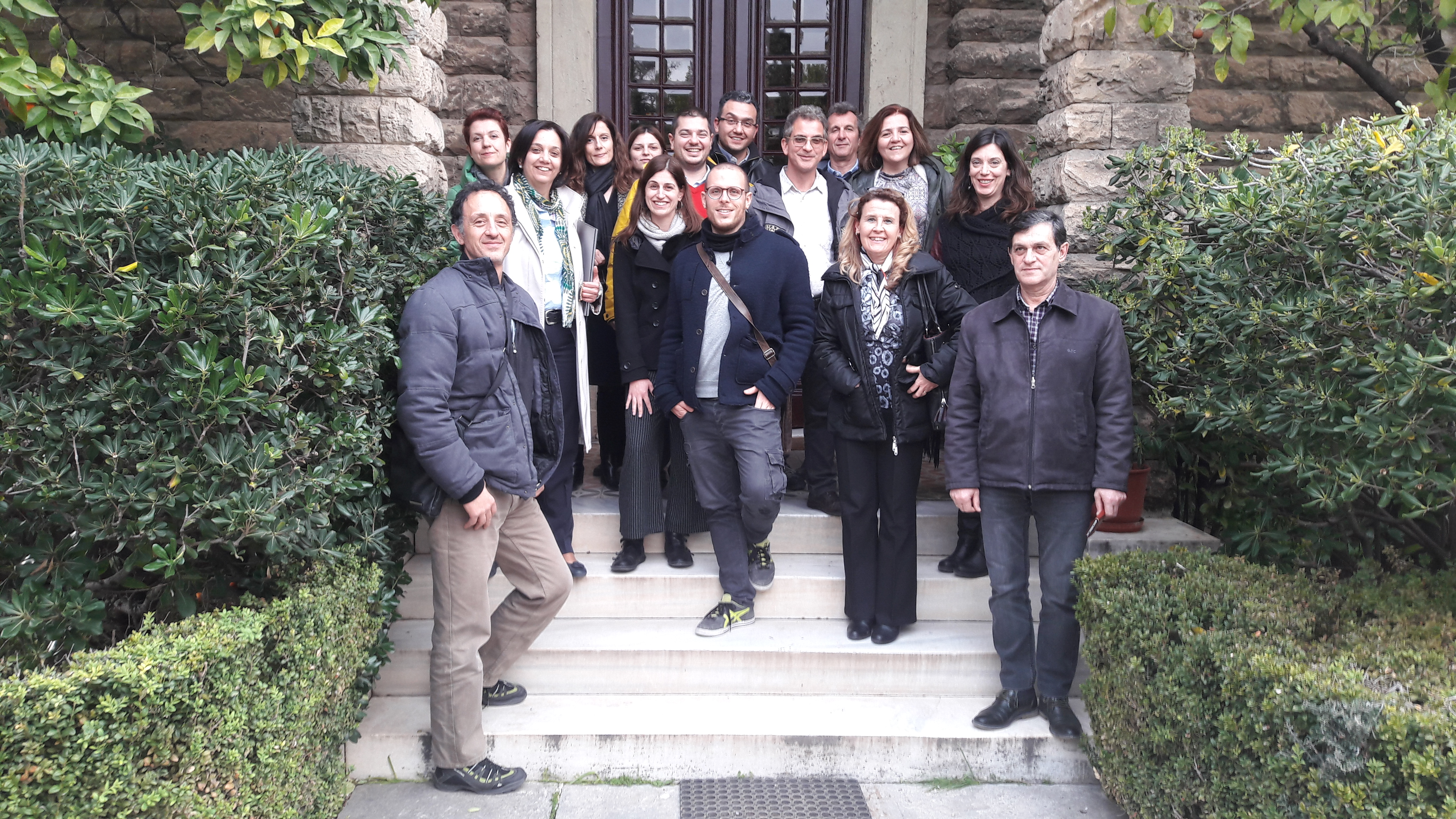June 2020 - LIFE ADAPT2CLIMA
Α) Identity of the project
| Title/ N° |
Adaptation to Climate change Impacts on the Mediterranean islands' Agriculture
LIFE ADAPT2CLIMA - LIFE14 CCA/GR/000928
|
| Duration |
1 October 2015 - 29 February 2020 (53 months) |
| Budget |
1,497,060 € (60% EC funding) |
|
Beneficiaries |
National Observatory of Athens (Coordinator), Agricultural Research Institute of Cyprus, Department of Agriculture, Rural Development and Mediterranean Fisheries of the Region of Sicily, Institute of BioEconomy of the National Research Council of Italy, National Technical University of Athens, Region of Crete |
| Location of activities |
Crete (Greece), Cyprus, Sicily (Italy) |
| Website | |
| Contact |
Dr. Christos Giannakopoulos, Project coordinator, E-mail: This email address is being protected from spambots. You need JavaScript enabled to view it. |
Description/Aim
The overall aim of the LIFE ADAPT2CLIMA project was to increase knowledge on the vulnerability of EU Mediterranean agriculture to climate change and to support decision making for adaptation planning. The methodology was based on the deployment of a set of climate, hydrological and crop simulation models for the assessment of climate change impacts on agriculture, as well as, on the development of a decision support tool for the elaboration of adaptation strategies for the agricultural sector.
Β) Best Practices
The good practices from LIFE ADAPT2CLIMA are related to:
-The development of the interactive and user-friendly ADAPT2CLIMA online decision support tool, designed to serve the needs of different groups of stakeholders.
-The implementation of the tool for the three areas of interest, which led to the development of strategies for the adaptation of the agricultural sector to climate change. The adaptation measures proposed in the strategies are expected to be integrated into the national agricultural policies of the next programming period (2021-2027) for Cyprus and Sicily, while for Crete, the project results are expected to be integrated in the Regional Climate Adaptation Plan (PESPKA).
Good practices for disseminating project results and information to the general public include:
-The five demonstration and training events of the ADAPT2CLIMA tool held in the three partner countries of the program, which are expected to continue after the project end.
-The participation of the project partners in more than 30 scientific conferences, workshops and events on climate change and its impacts.
-The official presentation of the "National Strategy of Cyprus for the adaptation of the agricultural sector to climate change" developed in the framework of the project, to all relevant stakeholders.
-The organization of the international scientific conference ADAPTtoCLIMATE with the participation of more than 250 delegates from 33 different countries and the presentation of more than 100 studies relevant to climate change impacts, vulnerability and adaptation.
Throughout the project, the consortium pursued the active participation of stakeholders through the development of local steering committees actively involved in the design of the tool as well as in the consultation of the adaptation strategies that were developed.
C) Results
The main project output was the development of the ADAPT2CLIMA online decision support tool, which aims to support farmers, policy makers and other relevant stakeholders (agronomists, agribusiness industry, etc.) in adaptation planning. The impacts of climate change on crop performance (for wheat, barley, tomato, potato, olive, grape), water availability and on the agricultural sector as a whole, are presented through interactive maps and graphs within a GIS-based environment. Moreover, the tool may be used to explore the available adaptation options aiming at increasing resilience of agriculture to climate change impacts.
The tool can be found in the following link: tool.adapt2clima.eu
The ADAPT2CLIMA tool may be used by everyone wishing to develop a regional adaptation strategy for the agricultural sector of Italy, Greece and Cyprus. In particular, the minimum data required for conducting a climate change impact assessment refer to the expected crop yield change and the cultivated area at municipal level, as well as some economic data related to the examined crops. Detailed instructions on the tool, as well as its application in other regions can be obtained from the User's Manual on the tool's website. Moreover, instructions on how to reproduce the project methodology and results are available at the project website.



